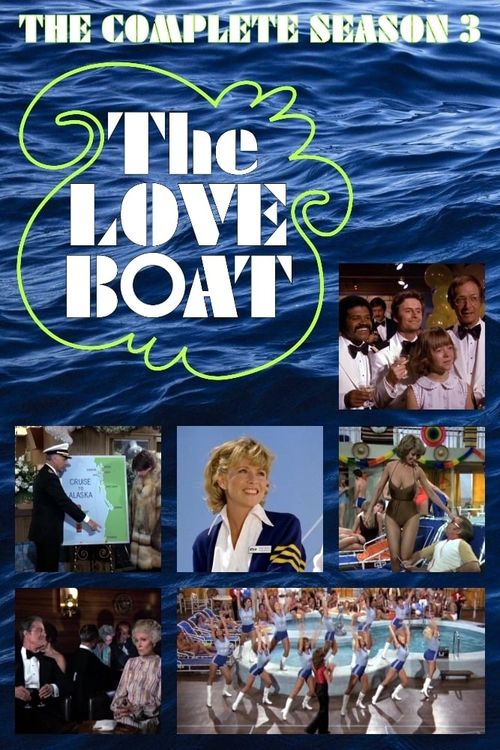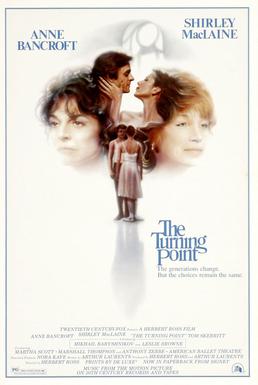Welcome to Retro Television Reviews, a feature where we review some of our favorite and least favorite shows of the past! On Wednesdays, I will be reviewing the original Love Boat, which aired on ABC from 1977 to 1986! The series can be streamed on Paramount Plus!
This week’s cruise is all about love and dancing!
Episode 3.4 “Going My Way/Dance with Me/Doc, Be Patient”
(Dir by Adam Rafkin and James Sheldon, originally aired on September 29th, 1979)
Oh no! The ship has just left port and Doc Bricker has come down with the flu! He’s so sick that he can barely walk without getting dizzy. Fortunately, there’s another doctor on the boat. Dr. Emily Bradford (Susan Sullivan) takes time away from her own vacation to not only look after Doc but also check in on his other patients. I have to admit that I found myself wondering if the cruise line agreed to pay her for filling in for Doc or if she just did it for free. It seems like, if she misdiagnosed anyone on the boat, it would lead to an even bigger lawsuit than usual.
It turns out that Doc is not a particularly good patient. He hates having his temperature taken. He hates getting shots. He even resists allowing Emily to take a look at his throat. But when he ends up sick and delirious, he’s thankful that Emily’s there. In fact, he’s so thankful that he decides that he’s in love with Emily and he wants her to spend all of her time with him! Emily reveals to Doc that he’s doing what so many past patients have done to him, falling in love with the person who takes care of them. A chagrined Doc says that he’s going to have to write a lot of apologies to his former patients.
Probably one of the stranger aspects of The Love Boat has always been the portrayal of Doc Bricker as some sort of decadent swinger. Bernie Kopell was very likable in the role of Adam Bricker but there was also absolutely nothing about him that would make one think that he was some sort of fun-loving satyr. While the show insisted that Doc was a legendary womanizer, he actually came across as being a mild-mannered, slightly out-of-touch but well-meaning suburbanite who just happened to work on a cruise ship. In this episode, Doc actually got to show some vulnerability and it was nice to see. Certainly, Bernie Kopell seemed to be more comfortable playing Doc as someone who hated needles as opposed to as a doctor who casually kept adult magazines in his waiting room.
While Doc came down with the flu, Suzy Butterfield (Arlene Golonka) is determined to still take her cruise despite having been stood up by her boyfriend. Because she has an extra ticket and because she enjoyed the jokes that he told while driving her to the docks, Suzy impulsively invites her cab driver, Mickey Greenbaum (Buddy Hackett) to join her on the cruise. Mickey, an aspiring writer, agrees and I assume he also loses his job as a taxi driver as a result.
On the boat, Suzy recommends women that Mickey could date and Mickey recommend men that Suzy could date but, of course, they’re destined to end up together. And, of course, they do. Mickey even proposes marriage. Yay! This was a sweet story, even if Buddy Hackett wasn’t the most convincing romantic lead. He was ten years older than Arlene Golonka and they had an older brother/little sister chemistry that didn’t exactly translate to romance. But no matter. I was still glad that things worked out for their characters.
Finally, world famous ballet dancer William Delaney (John Meehan) boards that boat with his much younger partner, Joanna (Starr Danias). Also on the cruise is William’s former partner, Marcy McGuire (Carol Lawrence). Marcy now runs a dance academy in Germany and she wants William to teach at the school. William realizes that he’s getting older and that he’s actually holding Joanna back by not retiring. William accepts Marcy’s offer, which Joanna’s misinterprets are William and Marcy having an affair. Fortunately, Captain Stubing is there to help gently explain the whole situation. Both John Meehan and Starr Danias were real-life dancers (To be honest, they were far better at dancing than delivering dialogue.) and the story is really just an excuse for the two of them to perform, together and separately. Starr Danias’s solo performance of Swan Lake was absolutely wonderful and, for me, the highlight of the cruise.
I enjoyed this episode. The passengers were likable, Doc Bricker finally stopped acting like a walking HR nightmare, and best of all …. there was dancing! This was a very enjoyable cruise.

